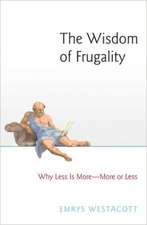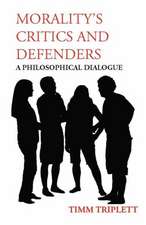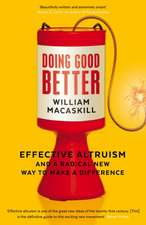Moral Realism: Bloomsbury Ethics
Autor Professor Kevin DeLappen Limba Engleză Paperback – 13 feb 2013
| Toate formatele și edițiile | Preț | Express |
|---|---|---|
| Paperback (1) | 217.09 lei 6-8 săpt. | |
| Bloomsbury Publishing – 13 feb 2013 | 217.09 lei 6-8 săpt. | |
| Hardback (1) | 712.96 lei 6-8 săpt. | |
| Bloomsbury Publishing – 13 feb 2013 | 712.96 lei 6-8 săpt. |
Preț: 217.09 lei
Preț vechi: 244.92 lei
-11% Nou
Puncte Express: 326
Preț estimativ în valută:
41.55€ • 42.92$ • 34.58£
41.55€ • 42.92$ • 34.58£
Carte tipărită la comandă
Livrare economică 25 martie-08 aprilie
Preluare comenzi: 021 569.72.76
Specificații
ISBN-13: 9781441161185
ISBN-10: 144116118X
Pagini: 208
Dimensiuni: 138 x 216 x 15 mm
Greutate: 0.32 kg
Editura: Bloomsbury Publishing
Colecția Bloomsbury Academic
Seria Bloomsbury Ethics
Locul publicării:London, United Kingdom
ISBN-10: 144116118X
Pagini: 208
Dimensiuni: 138 x 216 x 15 mm
Greutate: 0.32 kg
Editura: Bloomsbury Publishing
Colecția Bloomsbury Academic
Seria Bloomsbury Ethics
Locul publicării:London, United Kingdom
Caracteristici
Presents a comprehensive introduction for the advanced student, synthesizing the often disconnected debates in metaethics.
Notă biografică
Kevin DeLapp is Harold E. Fleming Chair of Philosophy at Converse College, USA.
Cuprins
Preface \ 1. Introduction \ 2. The Semantics of Realism \ 3. The Metaphysics of Realism \ 4. The Anthropology of Realism \ 5. The Psychology of Realism \ 6. The Epistemology of Realism \ 7. The Applications of Realism \ Glossary \ Further Reading \ Index
Recenzii
A welcome contribution to the moral realism literature. DeLapp presents a compelling account of the central disputes surrounding moral realism in an admirably clear book. Experts will find much of interest; those new to the subject will find an overview of the issues at stake, as well as a compelling case for why these issues matter.
A thorough and philosophically sophisticated analysis of moral realism and its alternatives. This book is an extraordinarily clear and highly valuable guide for both students and professional philosophers. DeLapp's defense of moral realism is imaginative and astute.
This is an accessible and lively introduction to philosophical arguments for and against moral realism. DeLapp manages to stay connected with the broad concerns of the educated public while presenting an interesting case for his own version of moral realism that ethical theorists must address.
Kevin DeLapp is a natural teacher who mounts a comprehensive argument to show that a strong form of moral realism is not crazy, possibly credible. DeLapp's tactic is offensive, not defensive, trying to establish that moral realism can be made sense of inside a naturalistic philosophical framework that takes moral psychology, evolutionary biology, and anthropology seriously.Moral Realism is the force to be reckoned with by us anti-realists who wanted to hear the moral realist's best arguments.
This book is more than a good and useful introduction to arguments for and against moral realism. DeLapp offers a plausible and supportable realistic conception. I highly recommend this book to anyone who wants to become familiar with contemporary metaethical issues and the ways in which they can be solved while maintaining a robust moral realism as a lively option.
A thorough and philosophically sophisticated analysis of moral realism and its alternatives. This book is an extraordinarily clear and highly valuable guide for both students and professional philosophers. DeLapp's defense of moral realism is imaginative and astute.
This is an accessible and lively introduction to philosophical arguments for and against moral realism. DeLapp manages to stay connected with the broad concerns of the educated public while presenting an interesting case for his own version of moral realism that ethical theorists must address.
Kevin DeLapp is a natural teacher who mounts a comprehensive argument to show that a strong form of moral realism is not crazy, possibly credible. DeLapp's tactic is offensive, not defensive, trying to establish that moral realism can be made sense of inside a naturalistic philosophical framework that takes moral psychology, evolutionary biology, and anthropology seriously.Moral Realism is the force to be reckoned with by us anti-realists who wanted to hear the moral realist's best arguments.
This book is more than a good and useful introduction to arguments for and against moral realism. DeLapp offers a plausible and supportable realistic conception. I highly recommend this book to anyone who wants to become familiar with contemporary metaethical issues and the ways in which they can be solved while maintaining a robust moral realism as a lively option.


























